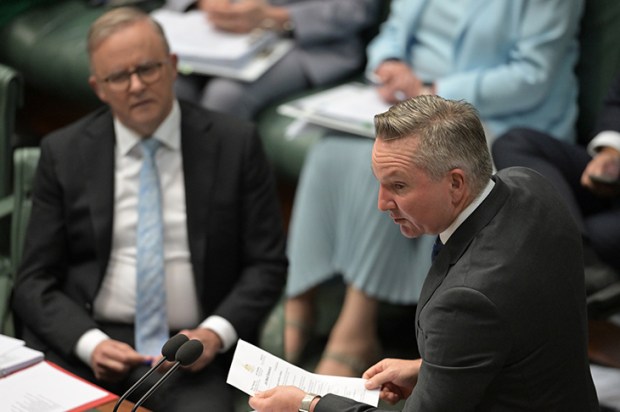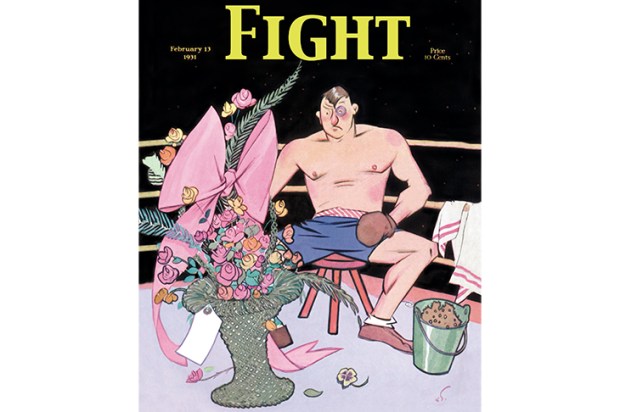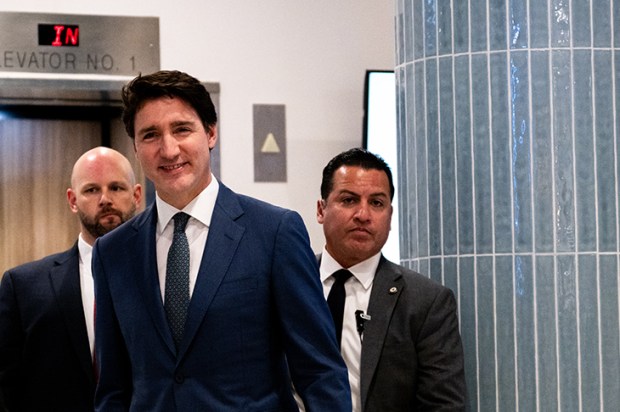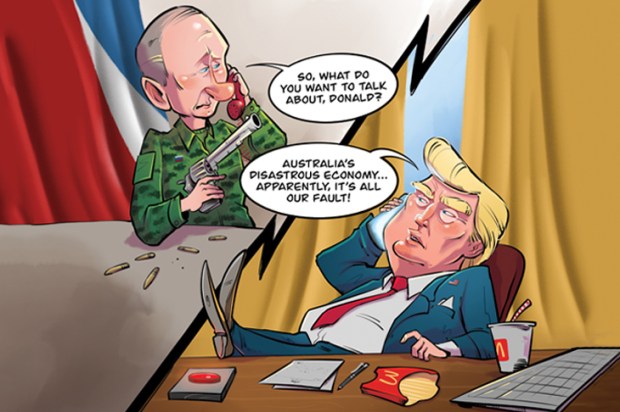Three months into his second term, President Trump is enjoying his equal highest approval rating ever according to a poll conducted by Trump-hating NBC. More Americans say the US is on the right track than at any time in the last 20 years and even though Trump only has 48-per-cent approval, in general more people support his policies than oppose them.
It’s safe to say Trump’s approval rating is not mirrored in allied nations.
The proposal that Canada become the 51st US state (don’t mention the Anschluss!) has gone down like a lead balloon notwithstanding Trump’s claim that Canadians would pay lower taxes and receive enhanced military protection. In a recent poll, 90 per cent of Canadians rejected the idea.
A North American union is nothing new. It was first raised in 1775, when the Continental Congress authorised the invasion of Canada and then abandoned the idea after losing the Battle of Quebec in a blizzard. It has periodically been proposed in America and dispatched north of the border. A 1966 single – ‘Canada USA’ – captures the scorn with its catchy chorus, ‘You can cheer for Jimmy Hoffa, You can join the Klan today, You can even be a commie when we’re Canada USA.’
Trump should be grateful at its perennial defeat since Canada’s electorate tilts Democrat and if its 40 million people were added to the US it would likely add millions of votes to their base. But the person with the most reason to object is opposition leader Pierre Poilievre. Trump trolling that the US-Canada border is an ‘artificially drawn line’ and trash-talking then prime minister Justin Trudeau as ‘Governor of the Great State of Canada’ has given new Liberal party PM Mark Carney a Trump bump. Last September 45 per cent of Canadians preferred Poilievre as PM and only 26 per cent backed Trudeau. Now Canadians are worried about Poilievre’s ability to counter Trump with a 16 March poll showing that in two months the Conservative lead has been cut to four percentage points, their support falling to 38 per cent, while the Liberals have risen 14 percentage points to 34 per cent. The trend is Carney’s friend and he will almost certainly call the election, scheduled for October, early to capitalise on Poilievre’s Trump slump.
On trade, more Americans support than oppose Trump’s tariffs, but this doesn’t alter the fact that they are harming the US economy. This is not rocket science. Tariffs are a tax, and though they are imposed on foreigners, like all taxes, they increase the cost of doing business, and reduce profits, harming consumers as prices rise, and businesses and their employees as demand and investment fall. Already, the OECD forecasts growth in the US economy will fall to 2.2 per cent in 2025, a decrease from earlier projections of 2.6 per cent.
US tariffs on Australia are particularly unfair because, over the 20 years since it was signed, our free trade agreement has allowed American exports to increase to almost double ours when our trade was roughly in balance when it was signed.
Yet although US tariffs on aluminium and steel exports are darkening our economic outlook, this cloud has a gold lining. Spooked by the prospects of global instability, trade wars, and a weakening US dollar, investors are stampeding to the safe haven of gold bullion. In January, our gold exports boomed to $4.6 billion, the highest monthly level since records began 30 years ago, driven by increases in volume and price, which reached a record high of US$3,027 per troy ounce. Ironically, Trump, whose towers are synonymous with golden glitz, has revived a gold rush and Australia has exported so much gold to America that, for the first time since we signed the free trade agreement, we have a trade surplus.
Further ‘reciprocal’ tariffs are anticipated in April which are not in any way reciprocal as Australia imposes no tariffs on, or non-tariff barriers to, US goods. These are likely to be imposed on our beef as Trump, at the behest of Big Pharma, seeks to pressure Australia to abandon our Pharmaceutical Benefits Scheme and make Big Pharma profits healthy again. So much for draining the swamp. If Trump was listening to Robert F. Kennedy Jnr, which he isn’t, instead of pressuring Australia to get rid of the PBS, he would implement one in America. Thanks to the PBS, per capita spending on prescriptions in Australia is roughly two-thirds the per capita expenditure in the US. If the US adopted a similar system, Medicare and Medicaid – over 40 per cent of prescription drug spending – could save $50 to $60 billion annually, and private insurers and individuals $70 to $80 billion annually. And without the pesky ‘reciprocal’ tariffs, Americans could afford to eat more healthy Aussie grass-fed beef; a win-win for both countries.
The reality is that for all Trump’s talk of levelling the playing field, the US agricultural market, like the EU’s, is highly protected, with a combination of subsidies, tariffs, quotas, and trade barriers, just as US aluminium and steel producers benefit from more assistance than their Australian counterparts. Yes, a better ambassador and a better PM might get a better deal but as a small open trading economy the most important thing we can do is be even more competitive and diversify our markets.
Another presidential paradox is that Trump says he doesn’t want crazy countries to get nuclear weapons and wants talks with Russia and China to cut nuclear stockpiles. Nothing, however, is speeding up nuclear proliferation faster than Trump’s attacks on his allies. His ambiguous stance on Nato’s Article 5 which commits the signatories to collective defence and fears about US isolationism have already prompted talk of independent nuclear deterrents not just in Europe but in the Middle East and Asia.
Call it the Kim Jong-Un effect – nuclear weapons are the shortest cut to effective deterrence. Just compare North Korea with Ukraine, which gave up its nuclear arsenal in 1994 in exchange for a piece of paper (the Budapest Memorandum) meant to guarantee Russia, the UK and the US would respect its sovereignty, independence and territorial integrity and not use force or threats against it. It’s clear it’s not worth the paper its written on and Trump – let alone Putin and Xi – respects Kim more than he does Zelensky. The lesson for Australia is we must beef up our defence and get ready to go nuclear – not as in power plants, but as in bombs.
The truth about Trump is that he is contemptuous of his allies because he abhors weakness and admires strength, but like many Americans who voted for him, we don’t have to like him. We need him to see that like Pine Gap, which warns the US of incoming missiles, we are a priceless piece of real estate and indispensable to America’s defence.
Got something to add? Join the discussion and comment below.
You might disagree with half of it, but you’ll enjoy reading all of it. Try your first month for free, then just $2 a week for the remainder of your first year.













